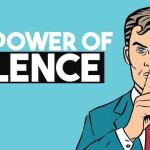Is there anything you can do to make the problem less severe later on? Of course, there is, and we'll tell you precisely what you can do to improve your hearing.
Avoid loud noises
Good hearing is the main enemy of loud noises. The further you stay away from it, the better. There are some objective ways to estimate it if you're in doubt. If you need to raise your voice to speak to other people or make them hear you, you may find it challenging to listen to what others around you say. Your ears hurt, your muffled hearing or your ears start ringing. All of these are signs that the environment you're in is too loud. Levels are measured in something called decibels. The principle is simple; the higher the number, the more audible the noise.
To put it into perspective, here are the decibel levels. The most common sound is whispering at about 30 dB. Two people having a conversation are already 60. The danger zone starts with traffic noise ranging from 80 to 85 dB. Any sound over 85 decibels can damage your ears, especially if exposed to it for long periods. I've already mentioned that listening to loud music through your headphones or earphones is a whopping 100 DB, which is much higher than the 85-decibel limit experts have said to keep your ears safe.
Be careful when listening to music.
It continues to be one of the most common reasons for hearing loss. People can't help but turn the volume up on their music so that it mutes any external sounds around them, but there's a much safer way to do that without giving up your love of listening to music through your earphones. You'll minimize any possible risks by sticking to the following rules:
First, use noise-canceling headphones instead of turning the volume up to drown out the world around you, and make it a habit to adjust the book to the point where you can hear the music comfortably but no higher. This is usually around 60% of the maximum volume or less. Finally, don't use your headphones or earphones for more than an hour at a time. Take at least a 10-minute break to let your ears breathe and to protect them from infection.
Protect your ears at loud events
Protect your ears when attending loud events such as the National Institute of Deafness and Other Communication. It warns that when we're exposed to loud noises for a long time, we start losing our hearing without even realizing it. Since the damage caused by exposure to loud noises is usually gradual, it goes unnoticed until the symptoms become more pronounced. Plus, according to the experts from this institute, loud noise exposure can also cause tinnitus, which is a ringing, buzzing, or roaring in the ears or head.
This is a severe problem because it can lead to hearing loss in both ears. That's why protecting your ears from deafening noises is crucial. And when you're at these venues, try to remove the source of all the noise and take a break from it every 15 minutes. Be sure to give your ears about 18 hours to recover after exposing them to excessive noise. Now you might consider wearing earplugs.
Add some cardio to your life.
Yep, you can enhance your hearing with exercise. In an exciting study published in the Journal of Neuroscience, a team of researchers from the University of Florida School of Medicine discovered a strong link between the cardiovascular system and the functional ability of the organs and tissues in the inner ear, improving When you exercise, you promote blood circulation that travels to the tiny bones and muscles in your ear when blood flow is facilitated through exercise. Nutrients like antioxidants and protective heat-shock proteins travel throughout your system and improve your hearing to prevent hearing loss.
You must perform large muscle movements such as walking, cycling, and swimming five days a week for at least twenty to thirty minutes. You'll not only keep your hearing safe; you'll get your whole body in shape too. It sounds like a win-win to me. Train your brain. The human brain plays a vital role in processing your ears' valuable information. Some cognitive exercises, for example, can stimulate your brain and improve your hearing. A recent study by the University of Pennsylvania shows a link between hearing loss and mental health conditions such as anxiety and depression.
Practice yoga
If you're still saying no to cardio, you can say yes to yoga. It's widely practiced for its variety of health benefits, and improved hearing is one of them, according to Dr. Manoj Shewill, a practicing physician and certified medical and clinical researcher. The main goal of these yoga exercises is to increase blood circulation in your ears and brain.
Increased circulation helps improve nerve function and flushes waste and toxins from the body. Yoga poses with deep breathing exercises increase oxygen and blood flow to the ear; the stretching and muscle relaxation that comes with yoga positively impacts the heart's circulation and blood pressure. Here are a couple of yoga poses you can include in your routine.
Change your diet.
Your diet also influences your hearing health to a certain extent, so it needs to contain nutrient-rich foods For good health and normal ear function. Ensure your diet is low in saturated animal fat and refined carbohydrates. Fatty foods are wrong since they reduce the blood supply to the ears and other body parts due to cholesterol buildup. As for other changes, you should consider eating more freshwater fish like salmon, trout, and herring and adding plenty of nuts, seeds, whole grains, and, most importantly, fresh vegetables and fruits to your daily meals.
Be sure to get lots of antioxidants in your system as well; they fight the aging process throughout the body and neutralize free radicals that build up and cause damage. It is critical to consume adequate amounts of vitamins B3, B6, B9, and B12. Vitamin b3 promotes blood circulation to the ears and the whole body by expanding the blood vessels. Vitamin b6 is required for healthy nerve function, while vitamins b9 and b12 play essential roles in the normal functioning of the brain and nervous system, as well as the formation of blood cells and DNA.
Maintain a clean outer ear canal.
While most of the time, the ear canal is like a self-cleaning oven, it does get clogged, which can cause partial hearing loss. Most people use Q-tips to deep clean their ears, but the truth is that they can do more harm than good since they can quickly push the wax deeper into the ear canal, leading to ear wax buildup and more severe problems. So what methods of ear cleaning are safe? Experts recommend drops of mineral oil or baby oil to unclog your ears. You can also use drops of hydrogen peroxide to clean your ears and dissolve earwax safely.
However, be aware that they may cause a mild burning sensation for a few minutes. The technique is usually more effective if some wax softener is applied about 15 to 30 minutes before rinsing. That's all you need to know to improve your hearing and prevent hearing loss in the future. Just be sure to consult your doctor if you ever experience sudden hearing loss. This issue can be a symptom of other serious medical problems, so don't waste time if the pain is severe or it may progress into something worse. Hey, are you hearing this, okay? Do you take good care of your ears? Tell us in the comments section below.
Conclusion
Use noise-canceling headphones instead of turning the volume up to drown out the world around you. And make it a habit to adjust the importance of your music so you can hear it comfortably. Any sound over 85 decibels can damage your ears, especially if exposed to it for long periods. Loud noise can cause tinnitus, a ringing, buzzing, or roaring in the ears or head. This is a severe problem because it can lead to hearing loss in both ears.
Add some cardio to your life to enhance your hearing with exercise. Yoga poses with deep breathing exercises increase oxygen and blood flow to the ear. Increased circulation helps improve nerve function and flushes waste and toxins from the body. Your diet also influences your hearing health to a certain extent, so it needs to contain nutrient-rich foods for good health. Fatty foods reduce the blood supply to the ears and other body parts due to cholesterol buildup. Eat more freshwater fish like salmon, trout, and herring, and add plenty of nuts, seeds, whole grains, and fresh vegetables and fruits to your daily meals.








